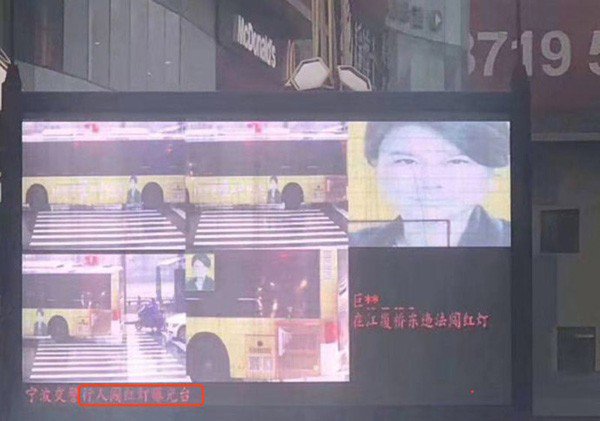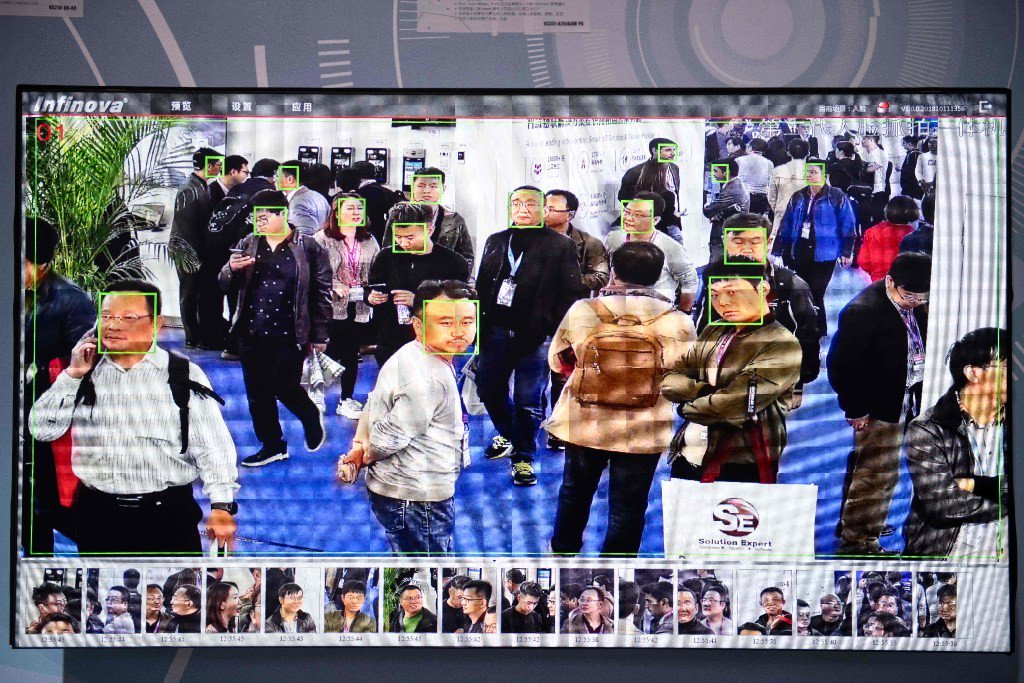The Chinese facial recognition system considered the image of a person on the bus as a traffic offender.

There are quite a few different systems in China using face recognition. One of them has been working on the roads for a couple of years, struggling with pedestrians who cross the road in the wrong place. This struggle gives certain results - the number of violations of this kind has been significantly reduced.
But there are funny cases. For example, the other day, the facial recognition system “spotted” Dong Mingzhu, a well-known businesswoman in China, who considered her an offender. It happened in the Chinese city of Ningbo. Systems of this kind display the image on the big screen so that other citizens can see who violates the rules of the road.
This would not be anything strange if the businesswoman really crossed the road in the wrong place. But in fact, the camera recorded not a person, but his image on a bus passing through a pedestrian crossing.
This case would have remained unnoticed if one of the Chinese people hadn’t taken a picture of the screen and posted the photo on the Weibo social network. After that, the picture began to massively diverge in chat rooms, after which it migrated to the global network from the Chinese segment.
A little later, Ningbo police posted a message on the same social network, recognizing the mistake made by the system. In addition, they erased information about the incident from the computer’s memory so that the woman’s reputation would not be damaged. Also, the police said that the system was updated, eliminating the recurrence of such incidents in the future.
In general, China is actively developing civilian facial recognition systems. In Shenzhen, this made it possible to catch 14,000 violators of the traffic rules on a hot one at just one of the crossroads.
In Ningbo, the systems were installed in June of this year. Since that time, 7800 cases of flagrant traffic violations by both pedestrians and cyclists have been recorded with their help.
It is worth noting that the Chinese "road patrols" can identify the user by his image in real time. But they do not make this information publicly available - both for purely technical reasons and for the preservation of the personal data of pedestrians. Instead, only part of the name or ID is shown.
In addition to cameras installed near the roads, Chinese law enforcement agencies use other technological advances. More recently, the police received new glasses with integrated cameras. This device works in conjunction with the tablet, on which the processing of incoming data.
By themselves, the police are unable to remember all those hundreds of thousands of criminals who are wanted by law enforcement agencies. Therefore, the authorities decided to use more advanced methods. In order to make life easier for the police, automatic search systems were created. The tablet is connected to the network, after the image is processed by artificial intelligence. It is reported that the system needs only 0.1 seconds to detect a person in the database, which consists of 10 thousand photos.
China not only develops face recognition systems for its own needs - companies from the Celestial Empire spread their know-how in other countries. According to Freedom House, Chinese people surveillance technology is currently operating in at least 18 other countries. And in some cases, the information is transmitted to the Chinese server.

For example, one of the systems is used in Mexico City, here it is known as the Safe City. This is a whole network of surveillance cameras that are connected to the facial recognition system. The network operates in the capital and cities of the two states of Mexico. The project is positioned as a way to deal with violations of various kinds, including traffic rules.
Malaysian police have at their disposal wearable cameras that work in conjunction with the system created by Chinese start-up Yitu. Images taken by cameras are checked against those contained in the police database. Thailand is also going to import Chinese technology for the same purpose as Mexico. Startup Yitu has opened its office in Singapore.
Soon, similar systems will become quite familiar in other countries - there is no doubt about that.
